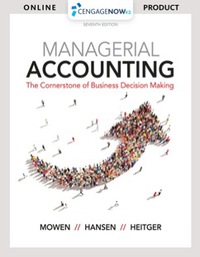Question
1. Joyce bought a new vehicle for family use from Ace Chrysler and the engine seized 3 days after the expiration of the three-year warranty
1.
Joyce bought a new vehicle for family use from Ace Chrysler and the engine seized 3 days after the expiration of the three-year warranty period. Ace claimed that the stated warranty period had expired and refused to fix it. Joyce disagrees with Ace and sues in small claims court. Who wins?
| A. | Ace, because as a seller, it included a warranty with its product stating the extent of its responsibility for fitness and quality pursuant to the Sale of Goods Act. | |
| B. | Joyce, because Ace breached an implied condition of the contract pursuant to a combination of common-law contract principles and the Sale of Goods Act. | |
| C. | Ace. Because the warranty expired, Joyce was required to sue in tort, not in contract, and Ace was neither negligent nor strictly liable. | |
| D. | Joyce. The warranty is actually an exemption clause that attempts to relieve Ace of its obligation to delivery quality goods to the consumer. In this case, since most people would expect a transmission in a modern car to last longer than 3 years, Ace would be required to stand by its product. |
2.
Office Plus Interiors purchased office furniture from Centrac with a certified cheque for $48,000. The Canadian Imperial Bank of Commerce (CIBC) certified that cheque because Office Plus had just deposited a $76,000 cheque into its CIBC bank account. CIBC then learned that the $76,000 cheque would not be honoured, and phoned Centrac to inform Centrac that CIBC had stopped payment on the certified $48,000 cheque. CIBC dishonoured the cheque when Centrac brought it in for payment. Centrac sued CIBC. Who wins in court, Centrac or CIBC?
| A. | CIBC, because it is the drawer, and not the drawee, that is ultimately responsible to the holder in due course. | |
| B. | Centrac, because Office Plus had guaranteed payment of the $48,000 cheque once certification was made. | |
| C. | CIBC, because the certified cheque was subject to the strength of Office Plus Interiors bank account. | |
| D. | Centrac, because once certification was made, CIBC had guaranteed payment on the $48,000 cheque. |
3.
A promissory note:
| A. | Involves a drawer who orders a drawee to pay a certain sum of money to the maker. | |
| B. | Involves a drawer who orders a drawee to pay a certain sum of money to the payee. | |
| C. | Involves a maker who orders the drawee to pay a certain sum of money to the payee. | |
| D. | Involves a maker who promises to pay a certain sum to the payee at a specified future date or on demand. |
4.
-
A bill of an exchange is a negotiable instrument that involves:
A. A drawer, a bank, and a payee.
B. A drawer, a drawee, and a payee.
C. A maker, a drawer, and a payee.
D. A maker and a payee.
5.
Syncrude operated large conveyor belts as part of its tar sands extraction project and ordered a number of gearboxes from two suppliers, Hunter and Allis. Both Hunter and Allis obtained their gearboxes from the same manufacturer. After several gears failed, it was determined that all would have to be replaced. Syncrude sued both Hunter and Allis. Both Hunter and Allis retorted that they were protected by exemption clauses in their contracts that limited their responsibility to a specific period of time that had expired. Syncrude argued that breaches of contract were so fundamental that they denied the effectiveness of the exemption clauses. What was the outcome of the case?
| A. | Hunter won and Allis lost, because Hunters contract with Syncrude specifically limited Hunters liability, as well as exempting the operation of all statutory warranties and conditions, whereas Alliss exemption clause only specifically limited Allis liability. | |
| B. | Allis won and Hunter lost, because Alliss exemption clause specifically limited its liability, as well as the operation of all statutory warranties and conditions, whereas Hunters exemption clause only specifically limited Hunters liability. | |
| C. | Both Allis and Hunter won, because both companies exemption clauses specifically limited their liabilities, as well as the operation of all statutory warranties and conditions. | |
| D. | The Supreme Court of Canada decided that exemption clauses would fail in the event of a fundamental breach of the Sale of Goods Act. |
Step by Step Solution
There are 3 Steps involved in it
Step: 1

Get Instant Access to Expert-Tailored Solutions
See step-by-step solutions with expert insights and AI powered tools for academic success
Step: 2

Step: 3

Ace Your Homework with AI
Get the answers you need in no time with our AI-driven, step-by-step assistance
Get Started


